Jinwon Choi
Threshold-aware Learning to Generate Feasible Solutions for Mixed Integer Programs
Aug 01, 2023



Abstract:Finding a high-quality feasible solution to a combinatorial optimization (CO) problem in a limited time is challenging due to its discrete nature. Recently, there has been an increasing number of machine learning (ML) methods for addressing CO problems. Neural diving (ND) is one of the learning-based approaches to generating partial discrete variable assignments in Mixed Integer Programs (MIP), a framework for modeling CO problems. However, a major drawback of ND is a large discrepancy between the ML and MIP objectives, i.e., variable value classification accuracy over primal bound. Our study investigates that a specific range of variable assignment rates (coverage) yields high-quality feasible solutions, where we suggest optimizing the coverage bridges the gap between the learning and MIP objectives. Consequently, we introduce a post-hoc method and a learning-based approach for optimizing the coverage. A key idea of our approach is to jointly learn to restrict the coverage search space and to predict the coverage in the learned search space. Experimental results demonstrate that learning a deep neural network to estimate the coverage for finding high-quality feasible solutions achieves state-of-the-art performance in NeurIPS ML4CO datasets. In particular, our method shows outstanding performance in the workload apportionment dataset, achieving the optimality gap of 0.45%, a ten-fold improvement over SCIP within the one-minute time limit.
Evaluating Out-of-Distribution Detectors Through Adversarial Generation of Outliers
Aug 20, 2022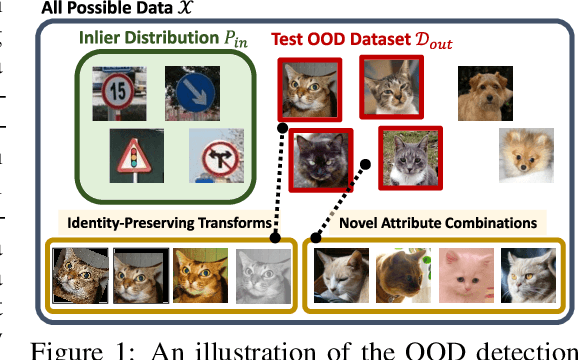
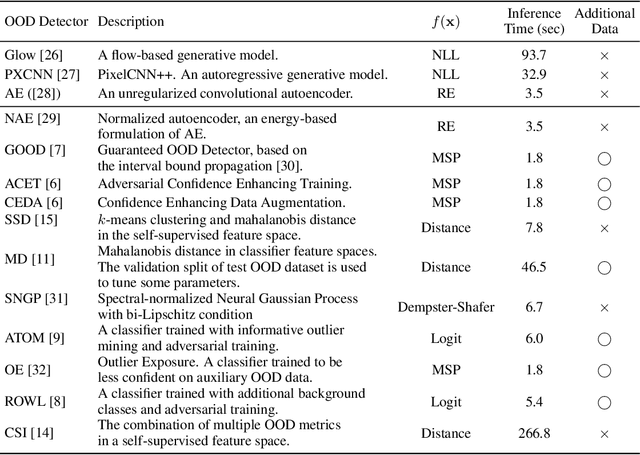
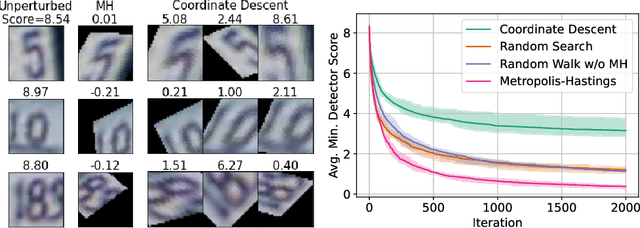
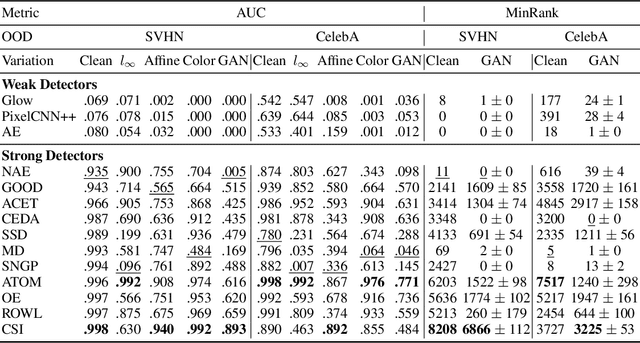
Abstract:A reliable evaluation method is essential for building a robust out-of-distribution (OOD) detector. Current robustness evaluation protocols for OOD detectors rely on injecting perturbations to outlier data. However, the perturbations are unlikely to occur naturally or not relevant to the content of data, providing a limited assessment of robustness. In this paper, we propose Evaluation-via-Generation for OOD detectors (EvG), a new protocol for investigating the robustness of OOD detectors under more realistic modes of variation in outliers. EvG utilizes a generative model to synthesize plausible outliers, and employs MCMC sampling to find outliers misclassified as in-distribution with the highest confidence by a detector. We perform a comprehensive benchmark comparison of the performance of state-of-the-art OOD detectors using EvG, uncovering previously overlooked weaknesses.
JORLDY: a fully customizable open source framework for reinforcement learning
Apr 11, 2022
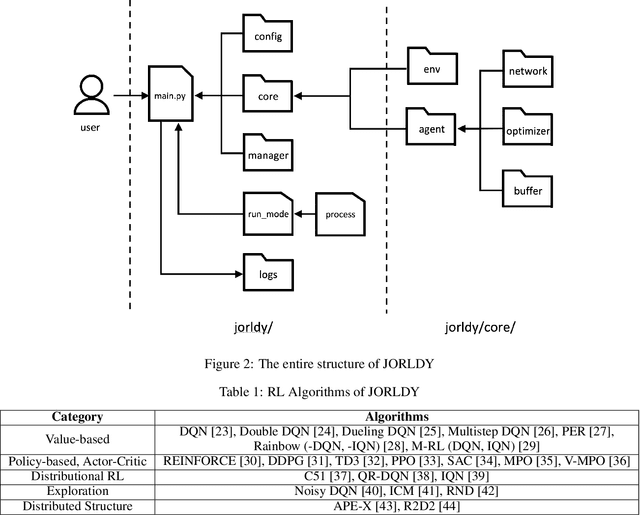


Abstract:Recently, Reinforcement Learning (RL) has been actively researched in both academic and industrial fields. However, there exist only a few RL frameworks which are developed for researchers or students who want to study RL. In response, we propose an open-source RL framework "Join Our Reinforcement Learning framework for Developing Yours" (JORLDY). JORLDY provides more than 20 widely used RL algorithms which are implemented with Pytorch. Also, JORLDY supports multiple RL environments which include OpenAI gym, Unity ML-Agents, Mujoco, Super Mario Bros and Procgen. Moreover, the algorithmic components such as agent, network, environment can be freely customized, so that the users can easily modify and append algorithmic components. We expect that JORLDY will support various RL research and contribute further advance the field of RL. The source code of JORLDY is provided on the following Github: https://github.com/kakaoenterprise/JORLDY
 Add to Chrome
Add to Chrome Add to Firefox
Add to Firefox Add to Edge
Add to Edge